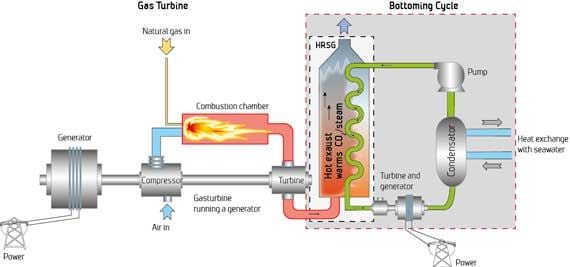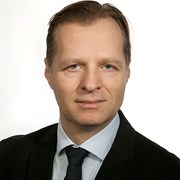Implementation will increase energy efficiency of offshore power production by reducing fuel consumption up to 30% and equally reduce CO2 emissions. Offshore gas turbines now have efficiencies of 38%. The remaining energy is expelled as waste heat in the exhaust leading to unnecessarily high CO2 emissions.
Applying bottoming cycles increases efficiency to 50%. A widespread implementation of bottoming cycles offshore has not happened due to their large weight and volume, lack of available space on existing platforms, and challenges with lifetime and reliability.
- The key deliverable from COMPACTS is a technology knowledge platform that allows for design of novel concepts for steam bottoming cycles that convert exhaust heat from offshore gas turbines to electricity. The improved design will be achieved by new modelling that optimizes compactness and reduces weight by replacing steel components with lighter metals like Al in the framework, or Titanium or Inconel in the heat exchanger. Particularly large weight reduction will come from novel framework concepts which currently contribute 50% of total weight.
- Implementing bottoming cycles will reduce fuel consumption, lowering CO2 emissions by 70 0 00 tonnes/yr for a 30MW turbine resulting in lower fuel cost and CO2 tax, helping make the investment economically viable. Improved energy efficiency is essential for the industry world-wide in order to attain society's acceptance for continued growth, particularly in the more environmentally sensitive Barents sea and Arctic Areas.
.

COMPACTS is a competence building project for industry funded by the Research council of Norway and the industry partners GDF SUEZ; Alfa Laval Ålborg, Statoil, Marine Aluminium.

